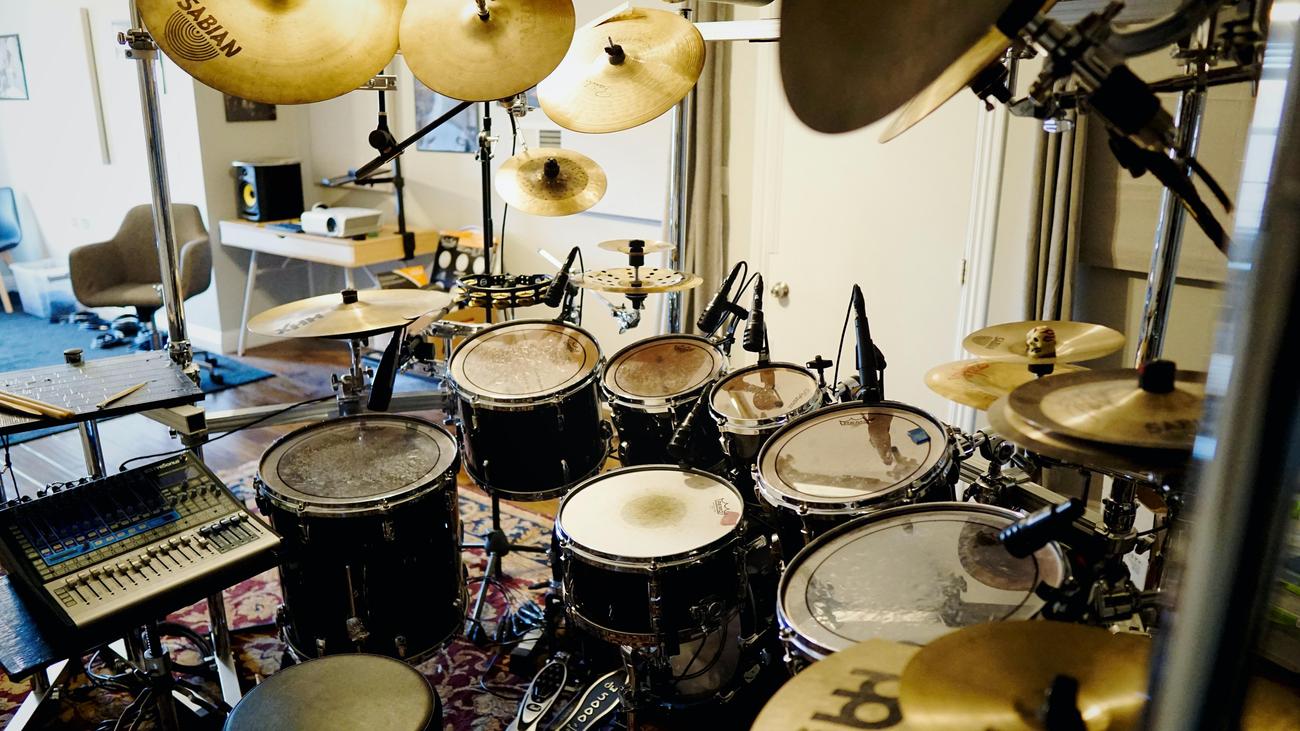Unraveling the Unique Brain of Drummers: A Neuroscience Perspective
Drummers, often considered the backbone of any musical ensemble, possess an extraordinary talent for rhythm that leaves many marveling at their abilities. But what is it about these rhythmic heroes that sets them apart? Are drummers’ brains truly unique? Delving into this intriguing question, we turn to the world of neuroscience, where an accomplished expert in music cognition and brain function aims to shed light on the neural pathways that underlie the remarkable skills of drummers. With years of experience and a deep understanding of rhythm perception and production, this neuroscientist is poised to uncover the secrets of drummers’ cognitive processes. So, let us embark on a fascinating journey as we explore the captivating world of drummers’ brains through the lens of neuroscience.
Are Drummers’ Brains Unique?
Drummers have always held a special place in the music world. With their unparalleled rhythmic abilities and ability to drive the beat, drummers often fall victim to stereotypes of being dimwitted or replaceable in a band. However, recent scientific research has shed light on the unique cognitive processes that occur in a drummer’s brain, challenging these misconceptions and revealing the extraordinary complexity of their neural pathways. So, are drummers’ brains truly unique? Let’s delve into the world of neuroscience and find out.

The Drummer’s Brain: A Different Structure
Neuroscientists from Bochum have made an intriguing discovery about the brains of regular drummers. They found that drummers have fewer but thicker fibers in the main connecting tract between the two halves of the brain, known as the corpus callosum[^1^]. This suggests a difference in brain structure compared to unmusical individuals. This finding has sparked interest in understanding the neural underpinnings of drumming and how it contributes to the drummer’s unique abilities.
Unleashing the Power of Rhythm
Drummers possess a rare, innate ability to problem-solve and influence others in their band[^2^]. It’s not just about keeping time or creating captivating rhythms; drumming has the power to evoke emotions and create a truly beautiful experience[^3^]. It’s no wonder that many legendary drummers are celebrated for their ability to connect with audiences on a deep emotional level.
Fine Motor Skills and Timing Mastery
Drumming is a complex motor skill that demands precise coordination and synchronization of both hands. Only a select few individuals possess the level of dexterity and coordination required to become skilled drummers[^5^]. Drummers must effortlessly control the timing, force, and rhythm of each strike, creating an intricate and nuanced performance. This fine motor control is a testament to the drummer’s unique neural pathways.
“The drumming brain displays a remarkable ability to control and synchronize complex movements, combining rhythm, timing, and precision in a way that few other activities can match.”
A Different Sense of Time
While most of us perceive time as linear, drummers have a different sense of it. Their internal clock moves in waves, rather than following the rigid ticking of a mechanical clock[^6^]. This unique perception of time allows drummers to create syncopated beats and complex polyrhythms, defying the constraints of a linear meter. They are masters of timing, effortlessly navigating intricate rhythmic patterns in a way that leaves us mesmerized.
Harnessing the Power of the Drum
The act of drumming can have profound effects on the brain. Research has shown that drumming can make the brain more efficient, leading to changes in the front part of the corpus callosum[^7^]. This brain structure is responsible for connecting the two hemispheres, and its enhanced efficiency in drummers suggests a profound impact on cognitive abilities.
Moreover, drumming has been linked to mental health benefits and improved intelligence[^8^]. The rhythmic nature of drumming engages various brain regions, releasing endorphins and reducing stress. It can even serve as a form of therapy, aiding individuals with anxiety, depression, and PTSD.
“Drumming not only serves as a form of self-expression but also as a pathway to mental well-being and cognitive enhancement.”
The Unique Minds of Drummers
Drummers possess a mental makeup that is different from other musicians or individuals. The intricate neural connections they develop through years of practice and experience contribute to their unique brain structure and cognitive abilities[^9^]. These distinctive qualities allow drummers to tap into a realm of creativity and rhythm that’s deeply ingrained in their being.
Unraveling the Rhythmic Wonders
Although drummers have long been undervalued and overlooked, scientific research is now revealing the exceptional abilities of their brains. Their unique brain structure, fine motor skills, sense of time, and mental health benefits all contribute to their extraordinary prowess. Drummers are not just timekeepers, but rather masterful architects of rhythm and emotion.
So, next time you see a drummer taking the stage, remember the intricate neural dance happening in their brain. Witness the unique expression of rhythm and creativity. And appreciate the remarkable abilities that set drummers apart.
Drums have been around for centuries and have a rich history that is full of fascinating facts. If you’re a drum enthusiast or simply curious about the instrument, you’re in luck! We’ve compiled a collection of fun facts about drums that will blow your mind. From the origins of drumming to mind-boggling drumming records, these facts will leave you in awe. So, what are you waiting for? Click here to uncover the intriguing world of drums: fun facts about drums. Get ready to be amazed!
The Brains of Drummers: Insights from Biopsychology Research
[youtube v=”Cs2mBdm604k”]
Drummers and their Unique Brain Structure
Recent biopsychology research conducted in 2019 has shed light on the fascinating differences found in the brains of drummers compared to non-musicians. One significant finding is that drummers have fewer but thicker fibers in the corpus callosum, suggesting a distinct variation in brain structure. This variation may contribute to their remarkable abilities in motor processing and greater connectivity.
As drummer’s brains exhibit unique structural characteristics, their motor trajectories of the two hands can be uncoupled. This uncoupling ability allows drummers to effortlessly control the timing, force, and rhythm of each strike, showcasing their mastery of fine motor skills and timing. Researchers also discovered that drummers possess a different sense of time, perceiving it in waves rather than linearly. This special skill enables them to create syncopated beats and complex polyrhythms.
The Drummer’s Mental Makeup and Cognitive Abilities
Drumming isn’t just about physical skill; it also requires problem-solving abilities and emotional influence within a band setting. Drummers possess a rare ability to problem-solve and influence others in their band, making their drumming an integral part of creating a beautiful and emotional musical experience. Neuroscientist David Eagleman highlights that drummers have an intuitive understanding of the rhythmic patterns they hear, perceiving them all around them. This innate ability contributes to their excellence in the art of drumming.
Drumming’s Impact on Cognitive Abilities and Mental Health Benefits
Drumming can have significant cognitive benefits, making the brain more efficient and enhancing cognitive abilities. Research suggests that training in drumming can lead to changes in the front part of the corpus callosum, leading to enhanced cognitive functioning. In addition to cognitive benefits, drumming also has positive effects on mental health. It serves as a form of therapy for anxiety, depression, and post-traumatic stress disorder (PTSD). By engaging in drumming, individuals can find solace, release emotions, and improve their overall well-being.
Drummers as Architects of Rhythm and Emotion
Scientific research continues to reveal the exceptional abilities and unique brain structure of drummers. They possess a distinctive mental makeup and cognitive abilities due to their neural connections developed through practice and experience. This neural development allows them to excel as architects of rhythm and emotion, evoking emotions through their drumming and creating a captivating musical journey.
In conclusion, biopsychology research has provided valuable insights into the brains of drummers, uncovering their extraordinary abilities and unique brain structure. The findings highlight the intricate relationship between drumming, cognitive functioning, and emotional well-being. As we delve deeper into the world of drumming, we gain a deeper appreciation for the power and complexity behind these rhythmic masters.
“Drummers possess a rare ability to problem-solve and influence others in their band, making their drumming an integral part of creating a beautiful and emotional musical experience.”
“Scientific research continues to reveal the exceptional abilities and unique brain structure of drummers, highlighting their prowess as architects of rhythm and emotion.”

FAQ
Question 1
What did researchers from Bochum discover about drummers’ brains?
Answer 1
Researchers from Bochum found that people who play drums regularly have fewer but thicker fibers in the main connecting tract between the two halves of the brain, suggesting a difference in brain structure compared to unmusical individuals.
Question 2
Is there evidence that drummers possess a unique problem-solving ability and the ability to influence others?
Answer 2
Yes, according to research, drummers have a rare, innate ability to problem-solve and influence others. They can be smarter than their bandmates who are less rhythmically-focused.
Question 3
Can playing and hearing a drum beat evoke emotions?
Answer 3
Yes, playing and hearing a drum beat can evoke emotions, making it a truly beautiful experience.
Question 4
Do drummers face stereotypes of being unintelligent or replaceable in a band?
Answer 4
Yes, drummers often fall victim to stereotypes of being idiots or replaceable in a band. However, scientific research shows that their brains are unique.
Question 5
What skills does drumming require?
Answer 5
Drumming requires complex fine motor skills with both hands, which only very few individuals can perform equally well.
















